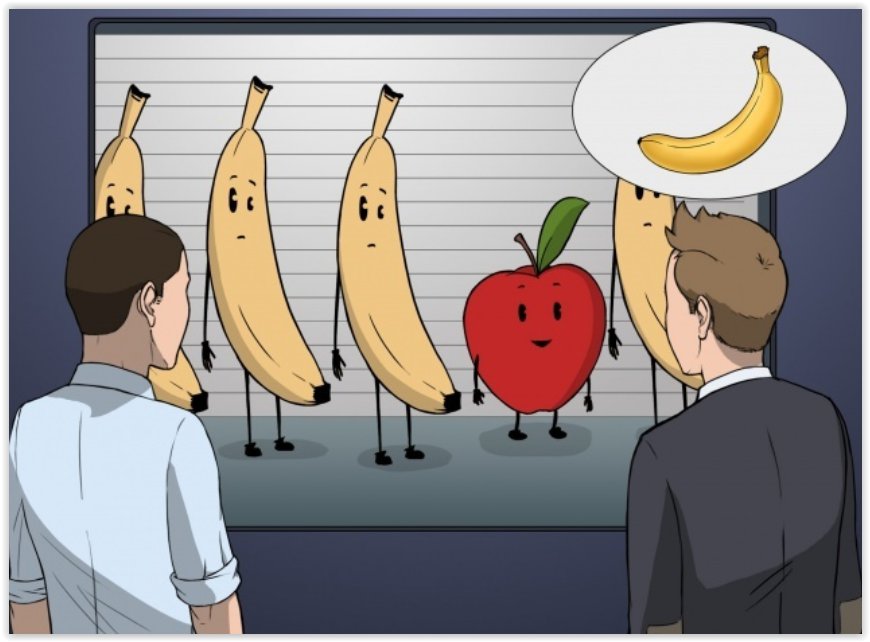Five unexplained paradoxes of the brain that affect our lives
17 Jul 2017
After all, the human brain is an amazing thing.
Modern scientists argue that his abilities have not been studied to the end. And every day they have more and more unresolved issues. But even those few facts about the brain that we already know are amazing

The Paradox of Orwell.
George Orwell studied how language affects our thoughts. In his novel "1984" the most terrible places were beautiful names, for example "the ministry of love" or "the camp of joy." This led to the heroes of the book believed that disgusting things are really beautiful. And a language in which all concepts meant absolutely opposite were called newspeak.
At first it seems that this could only happen in an anti-utopian novel, but Orwell warned that very soon we ourselves will begin to actively use the news. And it actually happens - for example, when we look at advertising, in which reality is too embellished with fanciful and beautiful phrases. Often our brain receives information from the language and believes, even if in fact it is catastrophically far from the truth.
Semax and Phenotropil helps to learn language.
Paradox of value.
For the first time this term appeared in the economy, but now it is increasingly used in a variety of areas.
Try not hesitating to answer the question: what is more valuable - a diamond or a glass of water? Anyone will respond that, without a doubt, a diamond is much more valuable. However, if you ask a person who spent many days in a lifeless hot desert, he will most likely say that no matter how much a diamond costs, the water is much more expensive for him.
This paradox proves that all our passions and attachments were formed under the influence of the surrounding world. So, all our dreams can change at any time, if we, for example, move to another city or get into a new environment. It's worth pondering: are you sure that you value, 100%?
The Kafka paradox.
In the story of Franz Kafka "Poseidon", the king of the underwater world constantly sat at the table and made various calculations. The bureaucratic work was so much that the lord of the waters could not free herself from her even for a moment, in order to really start ruling over his kingdom.
Of course, Poseidon could have assigned clerical work to someone else, but he did not believe that someone else would be able to cope with it. Thus, he became a hostage to his own ego, considering himself the most intelligent king, but in fact they are not.
And now let's think: how often do we give up real life because we think that no one can cope with small problems better than us?
The paradox of unanimity.
This paradox is often recalled during the investigation of intricate crimes. And it sounds like this: the more people unanimously agree in one opinion, the more likely that this opinion is mistaken.
The fact is that our brain is arranged in this way: we constantly unconsciously agree with the opinion of the majority of people. Let's say you came to the identification of a criminal, and you're 100% sure that you know which of the suspects actually committed the crime. However, all other witnesses immediately point to the other person. Most likely, in this case you will not only agree with them, but you will be absolutely sure that you are doing the right thing. After all, the crowd can not be wrong.
The Platonic Paradox.
This philosopher Plato has come up with a parable to show how stupid and ignorant people can be and how difficult it is to fix it.
Imagine prisoners who have been living in a dark cave since birth. All they see are the shadows appearing on the wall of the cave. They give names to all the dark figures. "Tree" they call the shadow of a tree, "dog" is the shadow of a dog.
If once the prisoners find themselves in the wild and see a real tree and a real dog, they will never believe that these strange things are really a tree and a dog. Thus, prisoners forever become hostages of their own life experience.

 Cart
Cart





